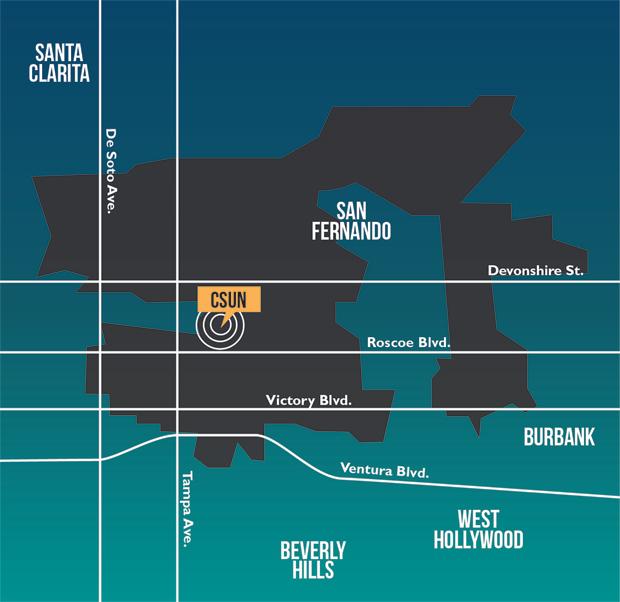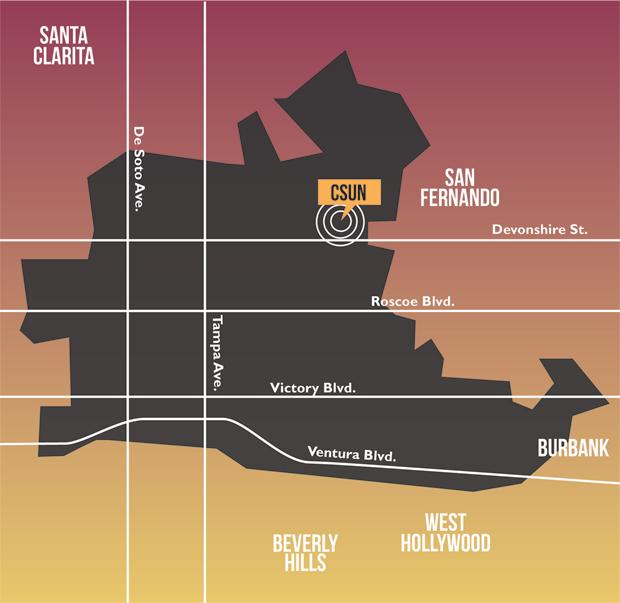The lines are drawn, the districts are set and an election is waiting. Starting this year, the next decade of Californian politics will be shaped by districts decided by a citizen committee.
Democrats have a chance to secure a supermajority in the State Senate by picking up two seats in November. The likelihood of a Democratic veto-proof majority was made possible primarily through the redistricting process approved by ballot measures.

Tom Hogen-Esch, political science professor at CSUN and resident authority on California politics said the way districts are drawn is part of the political game.
For California Republicans, crying foul over the game rules may have left them worse off this time around, according to Hogen-Esch.
“This is one of the ironies because the reform was actually pushed by the Republican party in California,” Hogen-Esch said. “Republicans thought this is a reform that’s going to benefit us, but it’s not because Republicans are slowly becoming a permanent minority party in California.”
Had the reform not been pushed through, Democrats would have most likely kept the status quo, according to Hogen-Esch.
“So the Republican Party is now looking into the abyss. Where are they going to go if they don’t have this role to play in California?” Hogen-Esch said. “If the Democrats can get the ? [majority] in the Assembly and the Senate, then the Republican party doesn’t really even have a role to play anymore.”

Registered democrats in California comprise of 43 percent of the electorate, with Republicans comprising 30 percent and independents and other small parties making up 26 percent. But Democrats dominate California’s legislature, holding 64 percent of seats. Redrawn districts may aid them in becoming the dominant party for years to come.
Voters elected to have a citizen commission take over the redistricting process in 2008, and reaffirmed their approval two years later.
In 2010, Proposition 20 asked if the state Constitution should be amended to give the commission power to redistrict for the U.S. House of Representatives in California. It was passed by 61 percent of the electorate.
The redrawn Congressional districts moved many votes to unfamiliar districts, and resulted in overlap in some incumbents’ districts. Some wonder whether candidate competition will increase, or if voter confusion will result.
“We may have situation where there’s too much reform going on at the same time, and there’s that law of unintended consequences,” Hogen-Esch said.
A prime example of incumbent competition is the race between Democratic Representatives Howard Berman and Brad Sherman, now pitted against each other in a redrawn District 30. The area covered by this district is mostly Sherman’s old territory, which could point to the end of a long political career for Berman in California, where he was first elected to the State Assembly in 1973.
Not only will some districts have to choose between incumbents, but the new primary runoff process results in the top two primary vote-getters advancing to the general election, regardless of party affiliation. Some districts may have choices in some races from only one party, such as with the race between Berman and Sherman. That may leave the 95,064 registered Republicans in District 30 feeling disenfranchised.
Merged districts has forced some cities into completely new territory, with one notable instance being the addition of Simi Valley, formerly in District 24, to Santa Clarita’s District 25.
The forced exodus of Simi Valley out of one of Ventura County’s districts into Los Angeles County has caused upset amongst residents, according to the Ventura County Star.
Efforts to dispute new district maps have been argued in court several times since the maps’ passage. But politics in California press on, and the districts will stand, for now.
“The Commission has now won five matters in a row. There are no outstanding claims against the Commission and the districts it created,” said James Brosnahan, a lawyer representing the Citizens Redistricting Commission according to a press release on Feb. 10 on the commission’s website.
Hogen-Esch commented that he does not think the Democrats will get a ? veto-proof majority, so Republicans may still have the power to influence the direction of the legislation in the state.
“If they [Democrats] do get it, Republicans are going to have to change their message to become more relevant,” Hogen-Esch said.




